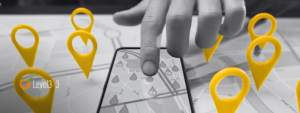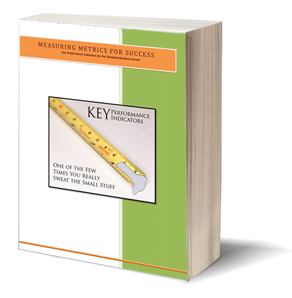You know, we ask a lot of our content. We expect it to bring traffic in, lift our rankings, entice repeat visits and convert our visitors to customers. All that, and then we write something like this actual product description, “Refill candle inserts, white stearine wax in plastic sleeve, size: 4 inches by 2 inches.” Wow. I want to buy that (heavy on the sarcasm).
Okay, so a product description isn’t quite the same as a blog post, service page or whitepaper, but come on – where’s the “here’s how this product helps you” part? Where’s the “you need this because…” part? How on earth can you expect a potential customer to relate to that?
Brand Storytelling Example – Telling Your Own Story
Every brand has a story. Some brands are really great at telling theirs. Minnetonka Moccasins is a good example. It’s fairly short, at a little less than 3 minutes in length, but it’s a very strong brand story.
You can be a storyteller – you can. By all means, share how your company evolved from a small, regional family store to an international family store, like Minnetonka Moccassins.
But not everybody has an interesting story to tell. Not everybody can be Minnetonka Moccasins, or GoPro Camera, or Aston Martin. Some companies just sell toilet paper. Some make car grease, glue or coffee cups. In other words, most brands are boring.
For those brands, go ahead and share your story. It shouldn’t take more than a few minutes, right? But then start looking at your customers’ stories. How has your brand helped your customers in the past?
Brand Storytelling Example – Telling Your Customers’ Stories
Goodwill has a great ad campaign that does just this. A lot of people just don’t think about donating to Goodwill. Goodwill’s ad campaign helps remind people that their donations have a purpose.
https://www.youtube.com/watch?v=wlbDRtkk9e4
On billboards, in magazines, in T.V. ads and online, you can read the stories of people who got jobs thanks to your monetary donations allowing them to learn a new trade, like the ad here. You can read about how people were able to give a successful interview, or go to their first day at a new job, thanks to the clothes that you donated.
You get to “meet” the people you help, which gives you a way to relate in an emotional way with donating to Goodwill. You’re helping others succeed.
And Then There’s Story Making
Recently, I came across an article in Adage entitled, “The Beginning of the End of Storytelling,” and I love the author’s perspective. He says:
“The future of storytelling isn’t about telling anyone anything. It’s about storymaking, where the brand facilitates and taps into the stories people are creating and sharing with each other. Storytelling is the epitome of the old one-way, broadcast mindset that so many of us in marketing are trying to leave behind. Storymaking, by contrast, is far more fulfilling, and exactly what will matter to the people all of our brands are trying to reach.”
It’s a short article, but well worth reading.
The TL:DR; version is for you to answer the questions I posed at the beginning of this article:
How can my business/product/service help my customers/clients?
Answer that question with their stories. In the Adage article, the author uses the Coke campaign as an example – you know, the bottles of Coke with a name on it? There are several other examples of brands making stories.
Tide Loads of Hope
Tide drives all over the country helping disaster victims by washing, drying and folding their clothes for free.
https://youtube.com/watch?v=XGcBgc4xPTI
GoPro
Thousands of people have used the GoPro camera to share incredible footage with the world. Now, GoPro has an awesome story:
But the stories told by their customers are even better:
Dove Real Beauty
Dove tells the story of how women view themselves, and how often it is so different than how others view them. The company does an excellent job of reaching out to its target market with their own stories, hopes and dreams.
What Story Are You Telling?
If you aren’t sharing your story in some way, why not? What do you have to lose? Share your “about” story, share your customers’ stories of how they’ve used your product, or just plain share their stories. Whichever you choose, give your potential and current customers a way to relate. Give them a reason to buy!
Let me end by sharing a great 2014 article at Hubspot’s blog, “Story Essentials: 15 Lessons from 2013’s INBOUND Bold Talks.”
Need help telling your story? Let’s start by creating compelling content and write it together!







































